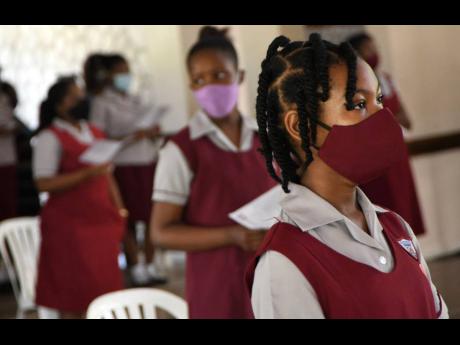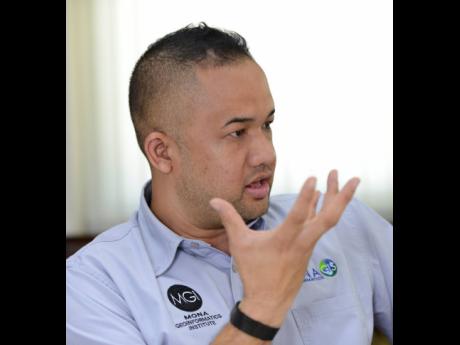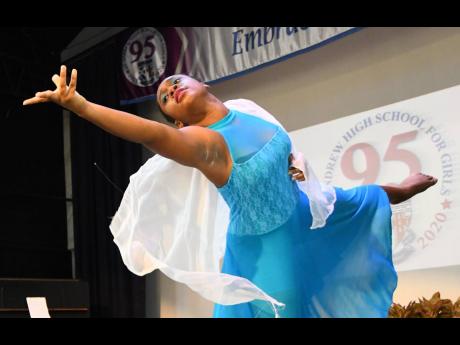‘Shame on them’ - Analyst slams principals for resisting COVID data for school reopening
A critical mass of educators has been criticised for their knee-jerk resistance to a data-driven proposal for the reopening of schools amid the COVID-19 pandemic.
Director of the Mona Geoinformatics Institute, Dr Parris Lyew-Ayee Jr, said that he was recruited a week ago to explore the value of using the geographic information system (GIS) to capture various risk profiles across Jamaica.
GIS mapping allows for the analysis of geographical data – a key tool the Ministry of Education intends to use in the phased reopening of schools since their shuttering in mid-March when the first coronavirus case was confirmed.
But the presidents of several organisations representing school principals who sit on the ministry’s e-COVID Management Task Force have rejected the resumption of face-to-face classes in October as dangerous. They also believe the use of GIS to be flawed.
The National Parent-Teacher Association of Jamaica is also in their corner.
That resistance bothers Lyew-Ayee.
“Educators don’t see the value of data. They just don’t get it, and that is a shame on them,” he said.
Lyew-Ayee said the team from the Mona Geoinformatics Institute will not be engaging in any “new work” but would be assembling data that already exists.
He said the institute is undertaking an assessment of the 2019 data for schools and for communities affected by COVID. The institute had undertaken a GIS mapping of 830 communities in April, from which the Private Sector Organisation of Jamaica culled data for the 25 worst affected communities. Linstead was determined to be the most vulnerable.
Lyew-Ayee said that he was volunteering his expertise but disclosed that mining the data has been a bit overwhelming in his first week.
“Data has been coming in, but it’s all over the place,” he told The Gleaner.
The geoinformatics expert insists that he is not an educator but was focused on “deciphering their own data in a different way”. The ministry will then insert additional information in the tool he intends to provide.
GIS mapping, demographic and health data will form the foundation for a vulnerability index the ministry plans to use in the reopening drive. That initiative will be geared at striking a balance between in-person classes and online learning.
The tug of war over school reopening comes amid news on Monday that three more persons died from COVID-19 a day earlier. Fatalities now stand at 70, while overall coronavirus infections have now reached 5,143, with 3,583 active.
President of the Jamaica Teachers’ Association, Jasford Gabriel, and Linvern Wright, president of the Jamaica Association of Principals of Secondary Schools, said on Sunday that they were vehemently opposed to the school plants hosting face-to-face classes because of the risk of viral spread.
That sentiment has found support from chairman and chief executive officer of Advanced Integrated Systems, Doug Halsall.
“I am sympathetic to the position of the teachers, although I am not unaware of the setback psychologically and socially to the children,” he said.
“Given what is happening now, I believe that we have got to be a little bit more cautious, because they are the future,” he urged.
Halsall said the resumption of in-person sessions is a delicate balance between health and technology.
“If you go heavily on technology, you need broadband for the children, and the ones that are likely to suffer are the ones that need the education the most.
“It is not an easy problem,” he added.
Principal of St Andrew High School for Girls, Keeva Ingram, said she has already told her students and staff that they should be prepared for the prospect that classes could be conducted online for the Christmas term.
“Our concern is the safety of the students, so it does not make sense for us to open if the children and staff are not safe,” said the administrator, who was on hand to celebrate St Andrew’s 95th anniversary.
“Teachers are people, too; they are fearful about coming out as well,” she said.
Like Gabriel and Wright, Ingram said that good sense must prevail.
“I don’t think it will be a situation where they are going to mandate for us to start even if persons don’t feel comfortable,” said the St Andrew High principal.
“What are you going to do - fire all the teachers if they don’t decide to come out?”



